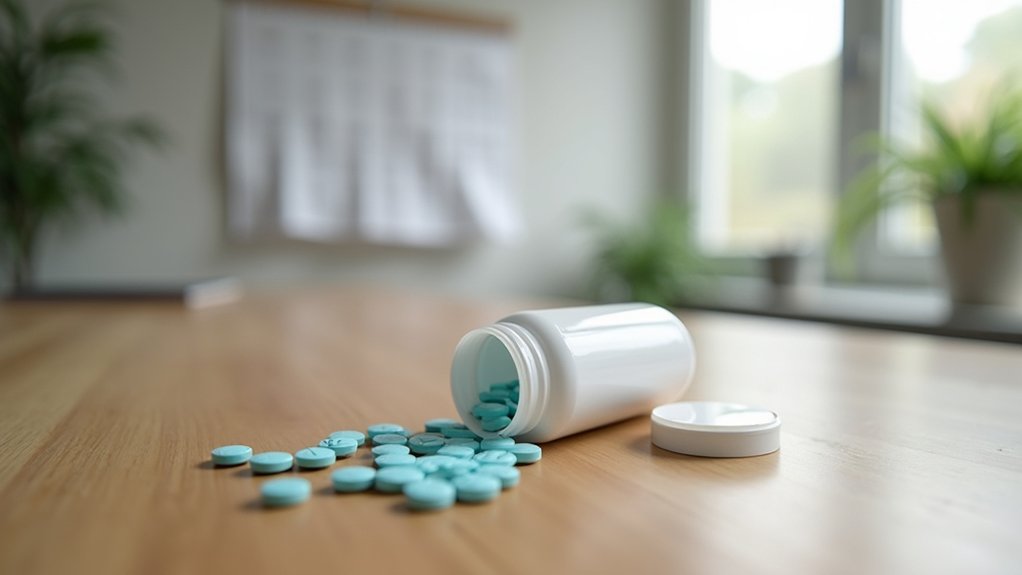The Connection Between Antisocial Behavior and Addiction
Antisocial behavior and addiction often intersect, creating a complex dynamic that can affect individuals and those around them. Antisocial tendencies, such as disregard for societal norms or impulsivity, can increase vulnerability to substance use, while addiction may amplify these behaviors.
Antisocial behavior and addiction often intertwine, creating challenges that require thoughtful intervention. Traits like impulsivity or disregard for social norms can increase the risk of substance use, while addiction can further exacerbate these behaviors. Immersive Recovery provides programs tailored to address both issues, focusing on the root causes and offering strategies to foster personal growth and healthier relationships.
What Is Antisocial Behavior?
Antisocial behavior refers to actions that violate social norms and disregard the rights or well-being of others. This behavior can manifest in various ways, including lying, theft, aggression, manipulation, or a lack of remorse for harmful actions. While occasional rule-breaking or defiance can occur in anyone, consistent patterns of such behavior may indicate deeper issues.
Antisocial behavior is often associated with Antisocial Personality Disorder (ASPD), a mental health condition characterized by persistent disregard for societal rules and interpersonal relationships. People with ASPD may struggle to empathize with others, act impulsively, or show a tendency toward criminal activities. However, antisocial tendencies can also exist outside of a formal diagnosis and vary in severity.
This behavior often begins in childhood or adolescence, sometimes as part of Conduct Disorder, which can evolve into ASPD in adulthood. Environmental factors, such as trauma or unstable family dynamics, and genetic predispositions are believed to play a role in its development.
Understanding antisocial behavior is vital for addressing its root causes and providing support. Early intervention, therapy, and structured environments can help individuals develop healthier coping mechanisms and foster more positive interactions with others.
What Causes Antisocial Behavior?

The causes of antisocial behavior are multifaceted, often stemming from a combination of biological, psychological, and environmental factors. Genetics can play a role, as certain traits, like impulsivity or aggression, may be inherited. Brain structure and function also contribute; abnormalities in areas responsible for impulse control, empathy, and emotional regulation have been linked to antisocial tendencies.
Environmental influences, particularly during formative years, significantly shape behavior. Experiences such as neglect, abuse, or exposure to violence can disrupt emotional development, making it harder for individuals to form healthy relationships or manage anger. Parenting styles, including inconsistent discipline or a lack of positive role models, can reinforce negative behaviors.
Peer influence is another contributing factor. Association with others who engage in deviant behavior can normalize rule-breaking and discourage adherence to societal norms. Additionally, socioeconomic challenges, such as poverty or lack of access to education, may increase stressors that drive antisocial conduct.
Psychological elements, including untreated mental health conditions like anxiety, depression, or trauma-related disorders, can also contribute to this behavior. Addressing antisocial tendencies often requires examining these underlying causes to provide targeted, effective interventions that promote healthier emotional and social development.
The Link Between Substance Use Disorders And Antisocial Personality Disorder
Antisocial behavior and drug use are closely connected, often reinforcing one another in a cyclical pattern. Individuals who engage in antisocial behavior may turn to substances as a way to cope with underlying emotional or psychological struggles. Conversely, drug use can amplify tendencies such as impulsivity, aggression, and disregard for social norms, deepening antisocial traits.
Substance use disorders (SUD) and Antisocial Personality Disorder (ASPD) frequently co-occur, with studies suggesting higher rates of addiction among those diagnosed with ASPD. Both conditions share overlapping risk factors, such as impulsivity, poor emotional regulation, and adverse childhood experiences. The symptoms of ASPD, including manipulation and a lack of regard for consequences, may also increase susceptibility to substance use as individuals prioritize immediate gratification over long-term well-being.
Drug use can exacerbate antisocial behaviors, leading to legal issues, strained relationships, and heightened aggression. Similarly, antisocial traits like deceit or manipulation can complicate recovery efforts, as individuals may struggle to engage authentically in treatment. Addressing this dual relationship requires an integrated approach that targets both the behavioral and substance use aspects, helping individuals develop healthier coping mechanisms and improve their quality of life.
Symptoms Of Antisocial Behavior and Substance Abuse
Antisocial behavior and substance abuse often present overlapping symptoms, creating challenges in identifying and addressing both issues.

Symptoms of Antisocial Behavior
- Ongoing neglect of societal rules and norms
- Deceitfulness, including lying or manipulating others
- Aggressive or violent tendencies, often resulting in conflicts
- Absence of empathy or guilt for harmful actions
- Impulsivity and poor decision-making skills
- Frequent involvement in illegal activities or risky behaviors
- Difficulty maintaining personal or professional relationships
Symptoms of Substance Abuse
- Obsession with obtaining and using substances
- Inability to manage or limit substance use
- Failure to fulfill responsibilities at work, school, or home
- Continued use despite negative physical, emotional, or social consequences
- Increased tolerance, necessitates higher amounts of the substance to achieve the same effect
- Experiencing withdrawal symptoms when the substance is not used
- Participating in risky behaviors, like driving while impaired or engaging in unsafe activities
Overlapping Signs
Increased Impulsivity and Reckless Behavior: Poor impulse control leads to risky decisions, such as dangerous substance use or unsafe practices, heightening the risk of harm.
Escalation of Conflicts: Mood swings and aggression strain relationships, causing frequent arguments or social isolation.
Criminal Activities: Financial pressures from addiction may lead to theft or fraud, often enabled by a disregard for consequences.
Resistance to Authority: Rejection of rules and denial of problems often delay seeking or accepting help.
Difficulty Building Trust: Manipulation and secrecy can hinder honesty and engagement in treatment, complicating recovery efforts.
Risks And Effects Associated With A Dual Diagnosis
A dual diagnosis, where a person experiences both a mental health disorder and a substance use disorder, poses significant risks and challenges. The interaction between these conditions can intensify symptoms, complicating treatment and recovery efforts.
Risks Associated with Dual Diagnosis:
- Worsened Mental Health: Substance use can exacerbate symptoms of anxiety, depression, or other disorders.
- Increased Substance Dependence: Mental health struggles may lead to self-medicating, deepening addiction.
- Higher Risk of Harm: Impulsivity, impaired judgment, and risky behaviors, such as self-harm or unsafe practices, are more common.
- Social and Legal Issues: Untreated dual conditions can result in strained relationships, job loss, or legal trouble.
- Barriers to Treatment: Stigma, denial, or lack of resources may delay care.
Effects of Untreated Dual Diagnosis
- Chronic Health Problems: Both conditions can lead to long-term physical and psychological damage.
- Reduced Quality of Life: Difficulty maintaining stability in relationships, work, and daily responsibilities.
- Relapse Risk: Unaddressed mental health issues can trigger substance use relapses and vice versa.
Treatments And Therapies For ASPD And Addiction
Treating Antisocial Personality Disorder (ASPD) alongside addiction requires an integrated approach that addresses both conditions simultaneously. Since individuals with ASPD may exhibit resistance to authority and struggle with empathy, therapies must be tailored to foster trust and engagement.
Effective Treatments and Therapies:
Cognitive Behavioral Therapy (CBT)
Concentrates on recognizing and altering harmful thought patterns and behaviors. It helps individuals develop healthier coping strategies and improve impulse control.
Dialectical Behavior Therapy (DBT)
Dialectical behavior therapy is especially useful for emotional regulation and reducing destructive behaviors, DBT teaches skills like mindfulness and interpersonal effectiveness.
Motivational Interviewing (MI)
Encourages individuals to recognize the impact of their behaviors and commit to change, addressing resistance common in ASPD.
Group Therapy
Group therapy provides a supportive environment for sharing experiences, although it may require careful facilitation to manage interpersonal dynamics.
Holistic Approaches
Men with ADHD may react strongly to criticism, becoming defensive or upset, even when the feedback is constructive. This can make it difficult to navigate work, school, or personal relationships, adding tension and stress.
Treatment is most effective when individualized, addressing the unique challenges of each person. Long-term therapy, consistent support, and a structured environment can significantly improve outcomes for those with ASPD and addiction.

Recovery is Possible at Immersive Recovery
At Immersive Recovery, we believe recovery is possible for everyone facing addiction and co-occurring mental health challenges. Our programs are designed to provide personalized care that addresses the unique needs of each individual, creating an environment where growth and long-term recovery can thrive.
We combine evidence-based therapies such as cognitive behavioral therapy (CBT) and Motivational Interviewing (MI) with holistic practices to treat the root causes of addiction. Our approach focuses on skill-building, emotional regulation, and relapse prevention, equipping our clients with the tools they need for sustainable change. For those with co-occurring disorders, we offer integrated care that addresses both mental health and substance use issues at the same time.
What sets us apart is our commitment to community and accountability. Our clients benefit from a structured, supportive environment where they can share experiences and build connections that inspire resilience. We tailor individualized treatment plans to ensure that each person’s progress aligns with their unique goals, fostering a sense of empowerment.
Recovery at Immersive Recovery is about more than overcoming addiction; it’s about rediscovering purpose and creating a fulfilling life. With compassionate guidance and proven strategies, we help our clients take meaningful steps toward lasting wellness and transformation. Contact us today to start your journey toward a healthier, more meaningful future.





